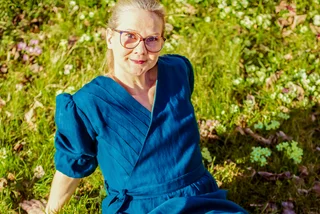"Before everyone arrived, I hit the store and picked up basic hygiene supplies, razors, shaving cream, shampoo, conditioner, feminine supplies as well as some medicines," said Avi. "I put the basket of stuff upstairs, where the guests would be staying, so they wouldn't have to worry about this when they first arrive. To me, it was nothing special, but apparently, it meant a lot to them. Afterward, some of them came to me crying and saying thank you."
